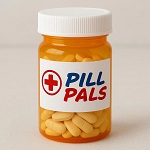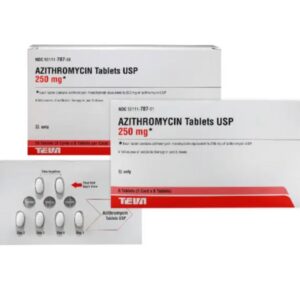With budget cuts in the horizon for Medicare, Medicaid, Social Security and, by default, Medicare Part D drug prescription coverage, seniors may need to be trained to develop literacy in the federal program and the most common factors in medicinal safety and efficacy, federal agencies say.
They may have to consider the variety of medicines they take, doctor consultations, their own medical history, eating habits, dosages and administration times and lifestyles when managing the benefits and risks of prescription drugs.
With age, changes in the bodies of seniors may influence how drugs are digested and used. For instance, how well their digestive system functions makes a difference in how quickly drugs enter their bloodstreams.
A shift in body weight can affect the amount of a medication a senior needs to take and how long it remains in his or her system.
The bloodstream can slow a drug’s absorption rate down, which, in turn, can impact how rapidly drugs enter the liver and kidneys. Both sets of organs may slow down their pace, factoring in the way in which medicine breaks down and exits the body of a senior.
Medication Details
Seniors are encouraged by doctors, pharmacists and drug policymakers to learn as much as they can about the medications they are prescribed or purchase over the counter and to follow instructions for drug management to ensure their safety and effectiveness.
They are asked to maintain a checklist of the most basic information about their medicines. Before a patient leaves a doctor’s office, he or she is advised to discover the following:
- The name of the medicine and its function;
- Whether there is a less costly alternative;
- How and when the drug can be taken and for how long;
- Whether to take the medication with water, food or other medicine and if both should be taken at the same time;
- Whether the drug can be taken with over-the-counter medicines and when;
- What must be done if a patient skips a dose;
- The timing of each dose;
- What is meant by “as needed”;
- Whether there are any other special instructions for taking the drug;
- Exactly what foods, drinks, other drugs, dietary supplements or activities must be avoided when taking the drug in question;
- Whether any tests or monitoring are needed when taking this medication and if results ought to be reported to the doctor;
- The side effects of taking the drugs and how to address them, and;
- When the medications will actually start to work and the telltale signs.
Drug Review With Doctors
Seniors may start by conducting a thorough review of their own medications. They may need to take all of their drugs into consideration and stay in touch with their primary care physicians, family practice physicians, internal medicine physicians, medical specialists, and pharmacists.
Then, seniors may need to examine their medical history, take stock of their eating habits, acknowledging and following their drug regimen regularly, take into account swallowing tablets, take a look at their lifestyles, and maintain a drug schedule.
They may inform all of their health care providers about their medicines, including both prescriptions and over-the-counter drugs, also known as OTCs, such as painkillers, antacids, cold medicines and laxatives. That would include eye drops, dietary supplements, vitamins, herbals and topical concoctions such as creams and ointments.
They ought to also ask their doctors to check on the safety and effectiveness of their medications, whether they still ought to take it or if there are any changes in their lifestyles they can take such as cutting back on fat in the diet or exercising more to keep from needing the medication.
Seniors should share their medical history with their doctors. Their primary care physicians, family practice physicians, internal medicine physicians, medical specialists may be interested in any food, medicine or other allergies.
Doctors will also want to know about other illnesses their patients may have and the therapies used by other doctors. Seniors are encouraged to keep a list of illnesses that they can share with doctors.
Additionally, their primary care physicians, family practice physicians and internal medicine physicians ought to get to know their medical specialists if they did not make recommendations themselves.
Seniors are urged to discuss their eating habits with their doctors. If, as patients, they follow or have altered their regimen for a special diet, whether that is a very-low-fat or high-calcium diet, they need to consult with their physicians.
They should also add details about how much coffee, tea or alcohol they consume per day and whether they smoke cigarettes. These features may change how their medication is digested.
If they have trouble distinguishing one medication from another or remembering when to take them or how much to take, seniors should consult their doctors to help them find better ways of organizing their medicines. Their physicians may be able to suggest or recommend better ways to remember or identify them such as a calendar or a pill box.
If seniors have difficulty swallowing tablets, they should ask their doctors, nurses or pharmacists for tips. Perhaps, there are liquid versions of their drugs they could take instead or they may be allowed to crush their pills. A patient must not break, crush or chew tablets without first seeking his or her doctor’s approval.
Seniors may also confer with their doctors to change their medication regimen to accommodate lifestyles that may include long or demanding work schedules, busy interactions with family and friends in need or frequent airplane or vehicular travel.
Their physicians may have ideas to best suit their lifestyles. For instance, they may be able to take their drugs once or twice a day as opposed to four times if this is a challenge, follow special storage instructions for keeping medicines out of the hands of grandchildren who visit their homes or to pack their medications in their carry-on bags as opposed to luggage during air travel.
They could even ask their doctors to write out a full drug schedule with instructions on when and how to take their medications. Seniors may have to consult with their primary care physician, family practice physician and internal medicine physician to see how their drug schedule can be changed, especially if they are visiting more than one doctor or medical specialist.
Help From Pharmacists
Seniors would do well to consult with their pharmacists either at a local drug store or the pharmacies located inside their hospital or medical facilities.
Pharmacists can inform them about how and when to take their medications, the side effects they can expect, the interactions that may take place, the best places to store the drugs and whether and when to obtain refills. They also convey important information about the medicines that doctors may not have revealed. Pharmacists can also take questions in private or over the phone.
They can keep watch over medicines by computer. When patients purchase their prescriptions from one pharmacy and notify their pharmacists about all of their over-the-counter and prescription drugs or dietary supplements, they can ensure those medications don’t interact negatively.
Seniors can ask their pharmacists to place their medications in accessible containers, especially if they find child-proof caps difficult to use and have no children living or visiting their homes.
They may request to have the labels of their prescriptions printed in larger type if reading the labels are too challenging.
Additionally, pharmacists can provide their patients with written information about their medications. They can do so in a patient’s native language if it is other than English.
At Pill Pals, we strive to provide our patients with superior customer service. This includes seniors! Our Pharmacists review your medications and make recommendations to your prescriber, if necessary. Our labels are also available in large font, so you don’t have to worry about squinting! Ready to get started? Choose either an Individual or Employer Sponsored Plan.
SOURCES:
- Administration on Aging of the U.S. Department of Health and Human Services, http://www.aoa.gov
- Agency for Healthcare Research and Quality of the U.S. Department of Health and Human Services, http://ahrq.gov
- Consumer Reports Best Buy Drugs (CRBBD), public education project of the Consumers Union, http://consumerreports.org/health/medication/tracker/index.htm or http://www.CRBestBuyDrugs.org.
- Council on Family Health, Brochure: “Medicines and You: A Guide for Older Adults,” http://www.cfhinfo.org.
- Food and Drug Administration of the U.S. Department of Health and Human Services, http://fda.gov
- Medicare Extra Help Program via Social Security, http://ssa.gov/prescriptionhelp.
- National Association of Boards of Pharmacy, http://nabp.net
- National Council on Patient Information and Education, http://talkaboutrx.org.
- National Institute on Aging Information Center, http://niapublications.org
- National Institutes of Health, http://nihseniorhealth.gov
- National Library of Medicine, “Drug Information” section, http://medlineplus.gov
- Pharmaceutical Assistance Programs (PAP), http://medicare.gov/pap
- State Pharmaceutical Assistance Programs (SPAP), http://medicare.gov/spap.asp
- Substance Abuse and Mental Health Services Administration, http://findtreatment.samhsa.gov
- Transportation Security Administration (TSA), (information about travel with medicines), http://tsa.gov

 Our Pill Pass® Drug List is only $6.99 or less and Shipping is FREE!
Our Pill Pass® Drug List is only $6.99 or less and Shipping is FREE!








